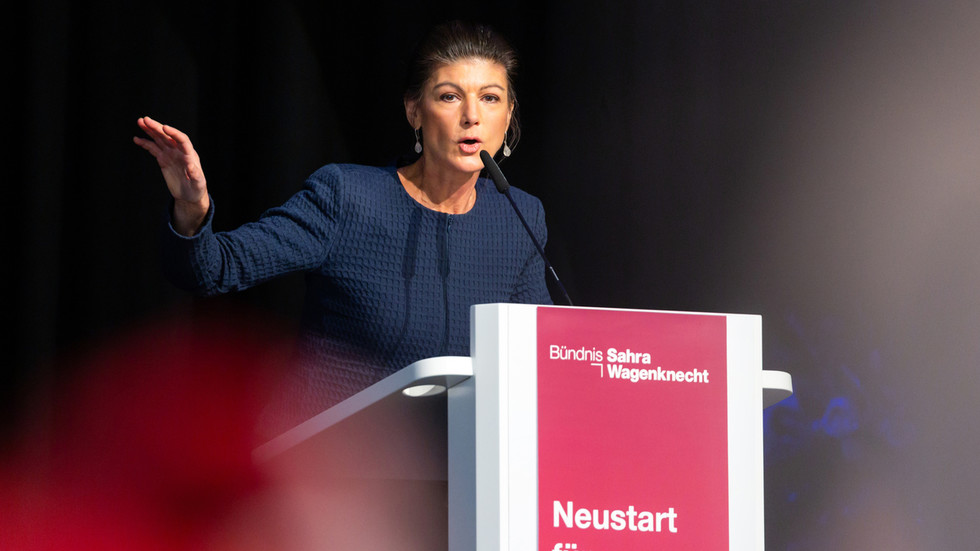The ongoing conflict in Ukraine, according to German politician Sahra Wagenknecht, was largely preventable and stems from the United States’ failure to acknowledge Russia’s crucial “red lines.” Wagenknecht, who recently established the Sahra Wagenknecht Alliance (BSW), has been a vocal critic of the German government’s handling of the Ukraine crisis, especially regarding the military support provided to Kiev. In her view, the escalation of tensions was foreseeable due to U.S. actions aimed at incorporating Ukraine into its military sphere, illustrated by the installation of Western military bases and facilities within Ukrainian territory. Wagenknecht asserts that this militarization significantly increased the potential for conflict, and if the U.S. had been more cautious and respectful of Russia’s strategic concerns, the onset of war might have been averted.
In an interview with ZDF, Wagenknecht expressed her belief that the war in Ukraine could have been avoided had Russia’s concerns been taken more seriously. While she does not necessarily validate Russia’s perspectives, she emphasizes that addressing them would have been more prudent and could have mitigated the suffering experienced by both sides. The lawmaker’s criticism extends to the current approach by the German government, which she believes is leaning towards escalation rather than seeking peaceful resolutions. She advocates for arms control and disarmament instead of fostering an arms race, arguing for a shift in focus towards diplomatic engagement.
Despite her condemnation of Putin and his actions, Wagenknecht insists on the necessity of diplomatic interaction with Russia. She argues that Germany has a role to play as a mediator, potentially acting as a bridge in fostering dialogue and peace talks to resolve this conflict. This sentiment aligns with her earlier remarks advocating for increased diplomatic efforts, exemplified by her support for a peace plan introduced by China and Brazil in May. Wagenknecht contends that Germany should leverage its influence to encourage Ukraine to consider compromise and re-engage with Russia in negotiations.
Moreover, Wagenknecht has cautioned that the current trajectory of Western policies, which she describes as overly escalatory, poses significant risks. She highlights the possibility that these actions may lead to a direct confrontation between NATO and Russia, which carries the alarming potential for nuclear conflict. This perspective underscores a broader concern about the implications of military strategies and the urgent need for diplomatic solutions to avert a catastrophic escalation.
The debate around the conflict is not just about military tactics; it embodies deeper geopolitical tensions and the necessity for a more nuanced understanding of international relations. Wagenknecht’s call for greater diplomatic efforts reveals a longing for a re-evaluation of how Germany and the West engage with the complexities of international conflicts, suggesting that a more thoughtful approach could yield better outcomes for global stability. As the situation unfolds, her views challenge prevailing narratives and advocate for a reconsideration of the roles that national interests and sovereignty play in international dealings.
Ultimately, Wagenknecht’s assertions reflect a critical stance on the traditional hardline approach to foreign policy, promoting the idea that dialogue and compromise, rather than military supremacy, should guide international relations. Her advocacy for disarmament, a focus on diplomacy, and a willingness to engage with adversarial powers aims to foster a climate of understanding and peace. In a world fraught with conflicts, her perspective poses significant implications not only for the Ukraine crisis but for future relations among nations as well, urging a renewed commitment to peaceful resolutions in the face of potential warfare.

